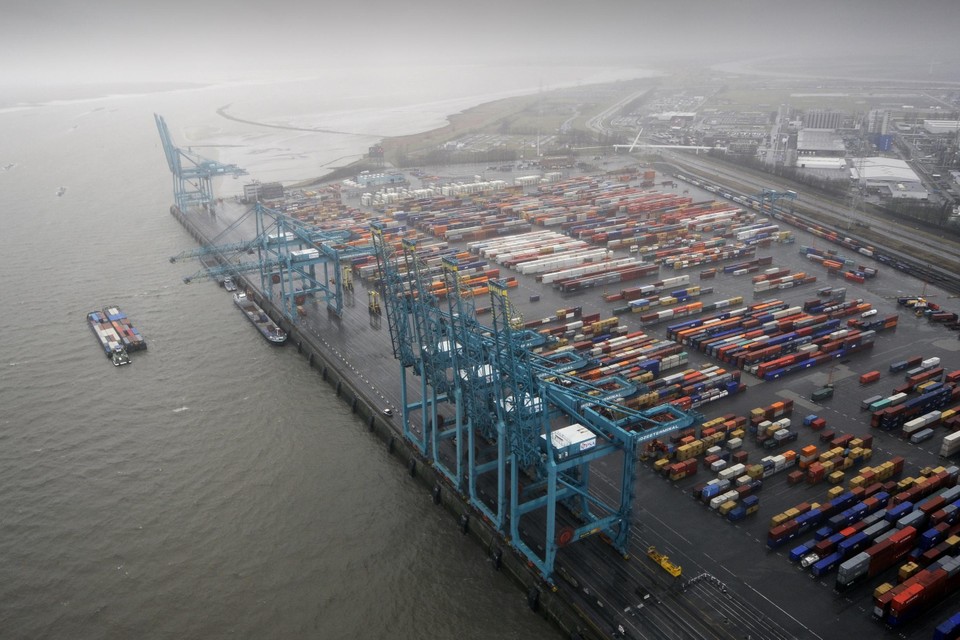An increasing number of port people are being accosted by the drug mafia in the port of Antwerp, according to Stephan Vanfraechem, the CEO of the Alfaport port platform.
Vanfraechem thinks the port companies are not involved enough in the fight against the drug mafia. But while it’s frantic, that is no reason not to fight. "It’s getting more and more frantic. It is too socially disruptive. More cooperation is needed.”
“I miss the coordination, the table where all parties – the customs, the police, the city council, the federal government and us – sit together. As a result, the measures sometimes lack focus and efficiency. People are not sufficiently aware of the finer points of the port.”
According to Vanfraechem, private companies and the government, including customs and police, have to exchange much more information. “Shipping companies have a lot of information about their containers, but this is not shared enough with customs or the police. Conversely, it is interesting for customs and the police to check their measures with the private sector.”
Among politicians, voices are rising to scan 100% of containers entering the port for drugs, such as cocaine, but this is technologically impossible, according to Vanfraechem. Additionally, it will lead to a huge logistical delay. “You have to 100% check those containers that you think might be wrong. Not only physically, but also on paper and digitally.”
'Limitless creativity'
Cocaine is hidden anywhere on those ships, Vanfraechem said. “The creativity of the drug mafia is limitless. It’s a bit like in the James Bond movies. They have invested heavily in IT and hacking and are switching strategies at lightning speed. That is why we must focus more on knowledge exchange, IT and artificial intelligence.”
But the exchange of information is complicated. Individuals or companies reporting that something is wrong have little legal protection. They are often reluctant to provide information.
“Customs often turn against them if the person ultimately responsible cannot be caught. There needs to be better cooperation,” said Vanfraechem. Witness protection is also difficult. People often do not want to testify in a drug trial because they are afraid of being threatened.
Raising awareness
Vanfraechem wants to increase awareness. At the request of the police, the port authorities have been working with prevention films and posters to encourage dock workers not to respond to requests to enter the drug trade.
“Drug criminals contact people who work in the port via WhatsApp, address them at parking lots and even go to cafes where many dock workers come. They eavesdrop, as it were, and strike when they feel that someone is short on cash and willing to earn a little extra. But if you say yes once, you are lost and you are in the web.”
Raising awareness among the 8,500 dock workers is working, said Vanfraechem. “But we also need to focus more on port employees. There are several thousands more. People from shipping company agencies, and forwarders in the office who know where a container is on the ship, where it is unloaded and at which terminal it ends up.”
Related News
- 372 kg of cocaine seized in port of Antwerp
- Belgium in Brief: Drug wars and double standards
- People don't want to see that their line of coke is tied to organised crime, says De Wever
Vanfraechem also advocated stricter access control at the terminals. After 9/11, they had to be fenced off and access controls had to be carried out. “Biometrics should be the next step,” he said.
Vanfraechem is annoyed by the fatalism that has arisen after the visit of the Antwerp and Rotterdam mayors to South America this year. Antwerp and Rotterdam are the main European gateways for cocaine.
A record amount of cocaine was seized in 2020: 40.6 tonnes for Rotterdam and 65.5 tonnes for Antwerp. The bulk is supplied from South America, where the source countries of the cocaine trade are located.
“Many see the ‘war on drugs’ as a hopeless mission. As if there is nothing that can be done about the drug problem. That is not true. We are taking good steps. But we can do more.”

